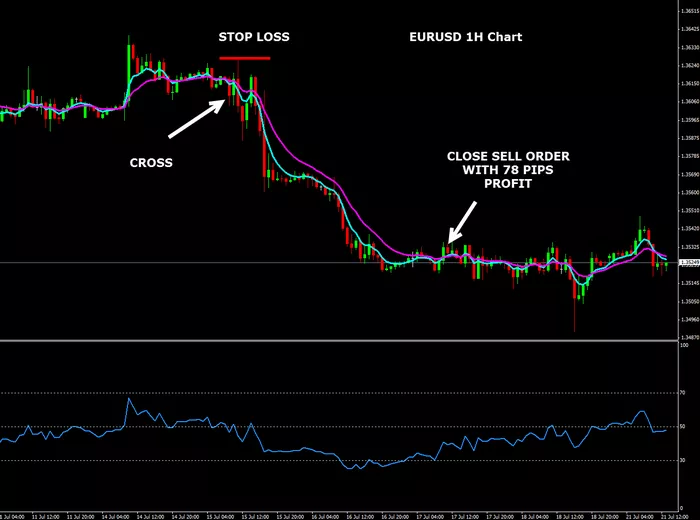The foreign exchange market, commonly known as Forex or FX, is a dynamic and complex global marketplace. It’s where currencies are traded, and it’s crucial for international trade, investment, and economic stability. Understanding the factors that influence the Forex market is essential for traders, investors, and economists. In this article, we will explore 7 key factors that control the foreign exchange market, providing a clear and objective overview.
1. Interest Rates
Interest rates are one of the most significant factors influencing the Forex market. Central banks set interest rates to control inflation and stabilize the economy. Changes in interest rates can lead to significant fluctuations in currency values.
How Interest Rates Affect Currency Value
Higher interest rates offer lenders in an economy a better return relative to other countries. Consequently, higher interest rates attract foreign capital and cause an appreciation in the value of the currency. Conversely, lower interest rates can lead to depreciation.
Central Bank Policies
Central banks, such as the Federal Reserve (Fed) in the United States, the European Central Bank (ECB), and the Bank of Japan (BoJ), use interest rates as a primary tool for monetary policy. Their decisions and forward guidance on future rate changes are closely monitored by Forex traders.
2. Economic Indicators
Economic indicators are statistics that provide information about a country’s economic performance. These indicators are critical for understanding the health of an economy and predicting future currency movements.
Gross Domestic Product (GDP)
GDP measures the total economic output of a country. A growing GDP typically leads to a stronger currency because it indicates a healthy economy. Conversely, a declining GDP can weaken a currency.
Employment Data
Employment statistics, such as the unemployment rate and non-farm payrolls in the United States, provide insight into the labor market. Strong employment data often lead to currency appreciation, while weak employment data can cause depreciation.
Inflation
Inflation measures the rate at which prices for goods and services rise. Moderate inflation is generally positive, indicating economic growth, but high inflation can erode purchasing power and weaken a currency.
See Also: 7 Points to Tell You How the Foreign Exchange Market Works
3. Political Stability and Economic Performance
Political events and economic performance are closely linked. Political instability or uncertainty can lead to decreased investor confidence and currency depreciation. Conversely, political stability and sound economic policies can strengthen a currency.
Government Stability
A stable government with clear policies can attract foreign investment, leading to a stronger currency. On the other hand, political turmoil, corruption, or sudden policy changes can deter investors and weaken a currency.
Geopolitical Events
Events such as elections, wars, and natural disasters can have immediate and profound effects on currency values. For instance, an unexpected election result might lead to significant currency volatility.
4. Market Sentiment
Market sentiment, or the overall attitude of investors towards a particular market or asset, plays a crucial role in the Forex market. Sentiment can be influenced by news, economic reports, and geopolitical events.
Risk Appetite
In times of economic stability, investors are more likely to take risks, leading to increased demand for higher-yielding currencies. In contrast, during periods of uncertainty, investors seek safe-haven currencies like the US dollar or the Swiss franc.
Speculation
Forex traders often speculate on future movements in currency pairs based on news, data, and other factors. This speculation can lead to short-term volatility and influence currency prices.
5. Trade and Capital Flows
Trade balances and capital flows are significant drivers of currency values. A country with a large trade surplus will see its currency appreciate, while a country with a trade deficit will see its currency depreciate.
Trade Balances
The trade balance is the difference between a country’s exports and imports. A surplus indicates that a country exports more than it imports, leading to higher demand for its currency. Conversely, a deficit suggests higher imports than exports, reducing demand for the currency.
Foreign Direct Investment (FDI)
FDI represents investments made by foreign entities in a country’s economy. High levels of FDI indicate investor confidence and can lead to currency appreciation. Low levels of FDI can signal economic problems and lead to depreciation.
6. Commodity Prices
Commodity prices, such as oil, gold, and agricultural products, can have a significant impact on the currencies of countries that are major producers or consumers of these commodities.
Oil Prices
Countries that are major oil exporters, like Canada and Saudi Arabia, see their currencies rise with increasing oil prices. Conversely, countries that are major oil importers, such as Japan, may see their currencies weaken when oil prices rise.
Gold Prices
Gold is often considered a safe-haven asset. When gold prices rise, currencies of gold-producing countries, like Australia, tend to appreciate. Additionally, during times of economic uncertainty, investors flock to gold, which can impact currency values.
7. Central Bank Interventions
Central banks can intervene in the Forex market to stabilize their currencies or achieve economic objectives. These interventions can take the form of direct buying or selling of currencies or indirect measures like changing interest rates.
Direct Intervention
Direct intervention involves a central bank buying or selling its currency in the Forex market to influence its value. For example, the Swiss National Bank has intervened in the past to prevent the Swiss franc from appreciating too much.
Indirect Measures
Indirect measures include policy changes that affect the money supply and interest rates. By altering these factors, central banks can influence currency values without directly intervening in the Forex market.
Conclusion
The foreign exchange market is influenced by a multitude of factors, from interest rates and economic indicators to political stability and market sentiment. Understanding these factors is crucial for anyone involved in Forex trading or economic analysis. By keeping an eye on these seven key factors, traders and investors can make more informed decisions and better navigate the complexities of the Forex market.
Related topics:


























